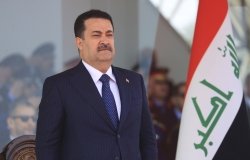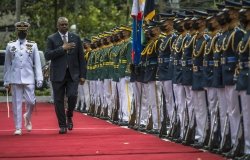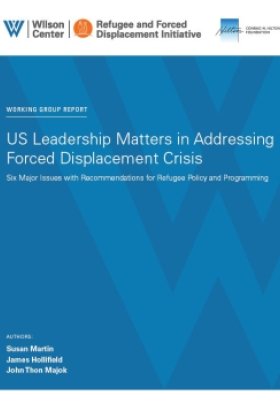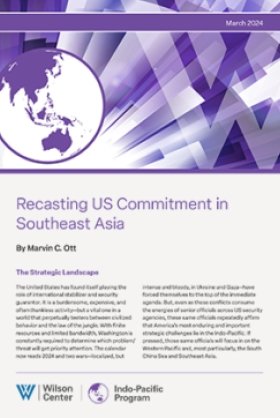178. U.S. Policy In The Balkans: Federation as Exit Strategy
Critics of American involvement in Kosovo generally charge that the United States has no business entering yet another bloody Balkan quarrel and that, if we did, we would never get out. Such fears are hardly groundless. An intervention undertaken without at least some agreement among the parties about long-term political objectives and without sufficient force to meet likely challenges on the ground could well end up the worst of all outcomes. It might well fail to stop the bloodshed among the parties. It could also produce significant casualties among the intervention troops. Unlike Bosnia in 1995, both sides in Kosovo still have the will to attempt to prevail by force.
The way to avoid open-ended intervention in Kosovo—as anywhere else—is to use military force to achieve a stable, self-sustaining political outcome. This will require re-examining some of the fundamental assumptions that have guided international negotiators since the disintegration of Yugoslavia in 1991. It is time to recognize that the crisis in the former Yugoslavia cannot be resolved by dealing with each of the Yugoslav successor states separately. It is also necessary to clear up some fundamental misconceptions about what a military force can accomplish in a Balkan peacekeeping context. Outside military intervention can defeat or aid in the defeat of one or another party to a conflict and thereby impose a military solution, e.g. Bosnia in 1995. It can also contribute stability to a situation where all parties agree, e.g. Bosnia after Dayton, at least before the Brcko decision. Military force cannot, however, create a political settlement where neither party agrees and where there are no pre-conditions for one, e.g. the UN in Croatia and Bosnia.
The Rambouillet interim agreement did a good job addressing most issues associated with a Kosovo that would remain within Serbia. After years of repression and bloodshed, however, autonomy is not a viable long-term option. The Rambouillet negotiators could not openly advocate independence because of divisions within the international community, irreconcilable opposition from Milosevic, and well-founded fears about the effect of Kosovo independence on Macedonia and Bosnia. If the Kosovo Albanians were granted independence, the Bosnian Serbs would almost certainly demand an equivalent right to leave Bosnia. Albanians in Macedonia – at least 25% of that fragile state's population – might well seek to join an independent Kosovo. Unfortunately, therefore, the price of an independent Kosovo – the only just solution after years of Serbian repression in Kosovo – would likely be almost as high as continuing the current conflict.
Other Kosovo options are equally gloomy. Serb domination, pursued by Belgrade since Milosevic eliminated the province's autonomy, has been a failure even in its own terms. Kosovo is lost to Serbia in any other sense than armed occupation. Efforts to hold onto Kosovo by force and against the will of the vast majority of its population – in addition to the brutal impact on the Kosovo Albanians – have poisoned Serb politics. Democracy will never come to Serbia as long as it tries to hold Kosovo by force and that is now the only way it can keep it. Partition has long been considered by some influential Serbs but because of the small size of the Serb population remaining in Kosovo and the non-contiguous distribution of Serb monuments, partition would, in practice, amount to the expulsion of Albanians from most of Kosovo.
There are no good options in Kosovo, just as there were no good options in Bosnia in 1995. So what is to be done? Putting these issues off for three years will not make them go away. The way to avoid open-ended intervention in Kosovo – as anywhere else -- is to use military force to achieve a stable, self-sustaining outcome. This must be a regional solution that would establish a loose linkage among Bosnia, Kosovo, Macedonia and Serbia. Such an approach would allow each party the benefits of independence but also recognize the existence of traditional political and economic ties and the necessity to respect national minorities.
One way to accomplish this task would be to create what might be called a Balkan Federation (BF). Members of the BF would be sovereign, with their own citizenship. The BF would be one human, economic and cultural space. Free movement of people, goods, information and capital would be guaranteed. Travel within the BF would be allowed on the basis of internal documents only, for people and vehicles. There would be a loose structure at the top to regulate common affairs but not to govern. This could consist of a Collective Council, with its chair rotating among four members. There would be room for common structures to evolve and for other potential members, such as Albanian, to join. Special and parallel political arrangements would be established among common ethnic regions in the members of the BF, e.g. Albanians in Macedonia with Kosovo; Serbs in Bosnia and Kosovo with Serbia; Moslems in Bosnia with Sanjak. There would be internationally enforced guarantees of minority rights and arms control regimes that would limit heavy weapons possessed by BF members, whose militaries would be required to orient themselves exclusively toward external defense.
The Balkan Federation would not be a new Yugoslavia; neither Croatia nor Slovenia would wish or be expected to join. A BF would, however, have a number of advantages. It is compatible with the current international approach in Kosovo and Bosnia; the BF could be implemented more or less on top of the Rambouillet interim agreement and the Dayton accord. It would allow all parties to claim victory. The Kosovo Albanians would gain separate status while the Serbs could still claim linkage with Kosovo and protection for people and monuments there. Ethnic groups would have institutional ties and practical contacts across current borders. It would offer the economic benefits of cooperation within a broad territory and utilization of residual Yugoslav ties. It would avoid the danger of formally redrawing borders.
Putting together such an agreement would probably require a major international negotiating effort -- a new Congress of Berlin in effect. It would be neither easy nor pleasant but if it succeeded it would avoid the periodic need for more Daytons or Rambouillets. A major international military force would be required to give time for a Balkan Federation to be negotiated and to take hold. It would, however, hold out the prospect of allowing international peacekeepers to leave with their heads held high, having accomplished a worthy and lasting task.
Such an approach would allow each party the benefits of independence but also recognize the existence of traditional political and economic ties and the necessity to respect national minorities.
One way to accomplish this task would be to create what might be called a Balkan Federation (BF). Members of the BF would be sovereign, with their own citizenship. The BF would be one human, economic and cultural space. Free movement of people, goods, information and capital would be guaranteed. Travel within the BF would be allowed on the basis of internal documents only, for people and vehicles. There would be a loose structure at the top to regulate common affairs but not to govern. This could consist of a Collective Council, with its chair rotating among four members. There would be room for common structures to evolve and for other potential members, such as Albania to join. Special and parallel political arrangements would be established among common ethnic regions in the members of the BF, e.g. Albanians in Macedonia with Kosovo; Serbs in Bosnia and Kosovo with Serbia; Moslems in Bosnia with Sanjak. There would be internationally enforced guarantees of minority rights and arms control regimes that would limit heavy weapons possessed by BF members, whose militaries would be required to orient themselves exclusively toward external defense.
The Balkan Federation would not be a new Yugoslavia; neither Croatia nor Slovenia would wish or be expected to join. A BF would, however, have a number of advantages. It is compatible with the current international approach in Kosovo and Bosnia; the BF could be implemented more or less on top of the Rambouillet interim agreement and the Dayton accord. It would allow all parties to claim victory. The Kosovo Albanians would gain separate status while the Serbs could still claim linkage with Kosovo and protection for people and monuments there. Ethnic groups would have institutional ties and practical contacts across current borders. It would offer the economic benefits of cooperation within a broad territory and utilization of residual Yugoslav ties. It would avoid the danger of formally redrawing borders.
Putting together such an agreement would probably require a major international negotiating effort -- a new Congress of Berlin in effect. It would be neither easy nor pleasant but if it succeeded it would avoid the periodic need for more Daytons or Rambouillets. A major international military force would be required to give time for a Balkan Federation to be negotiated and to take hold. It would, however, hold out the prospect of allowing international peacekeepers to leave with their heads held high, having accomplished a worthy and lasting task.
About the Author
Louis Sell
Read More
Global Europe Program
The Global Europe Program is focused on Europe’s capabilities, and how it engages on critical global issues. We investigate European approaches to critical global issues. We examine Europe’s relations with Russia and Eurasia, China and the Indo-Pacific, the Middle East and Africa. Our initiatives include “Ukraine in Europe” – an examination of what it will take to make Ukraine’s European future a reality. But we also examine the role of NATO, the European Union and the OSCE, Europe’s energy security, transatlantic trade disputes, and challenges to democracy. The Global Europe Program’s staff, scholars-in-residence, and Global Fellows participate in seminars, policy study groups, and international conferences to provide analytical recommendations to policy makers and the media. Read more










